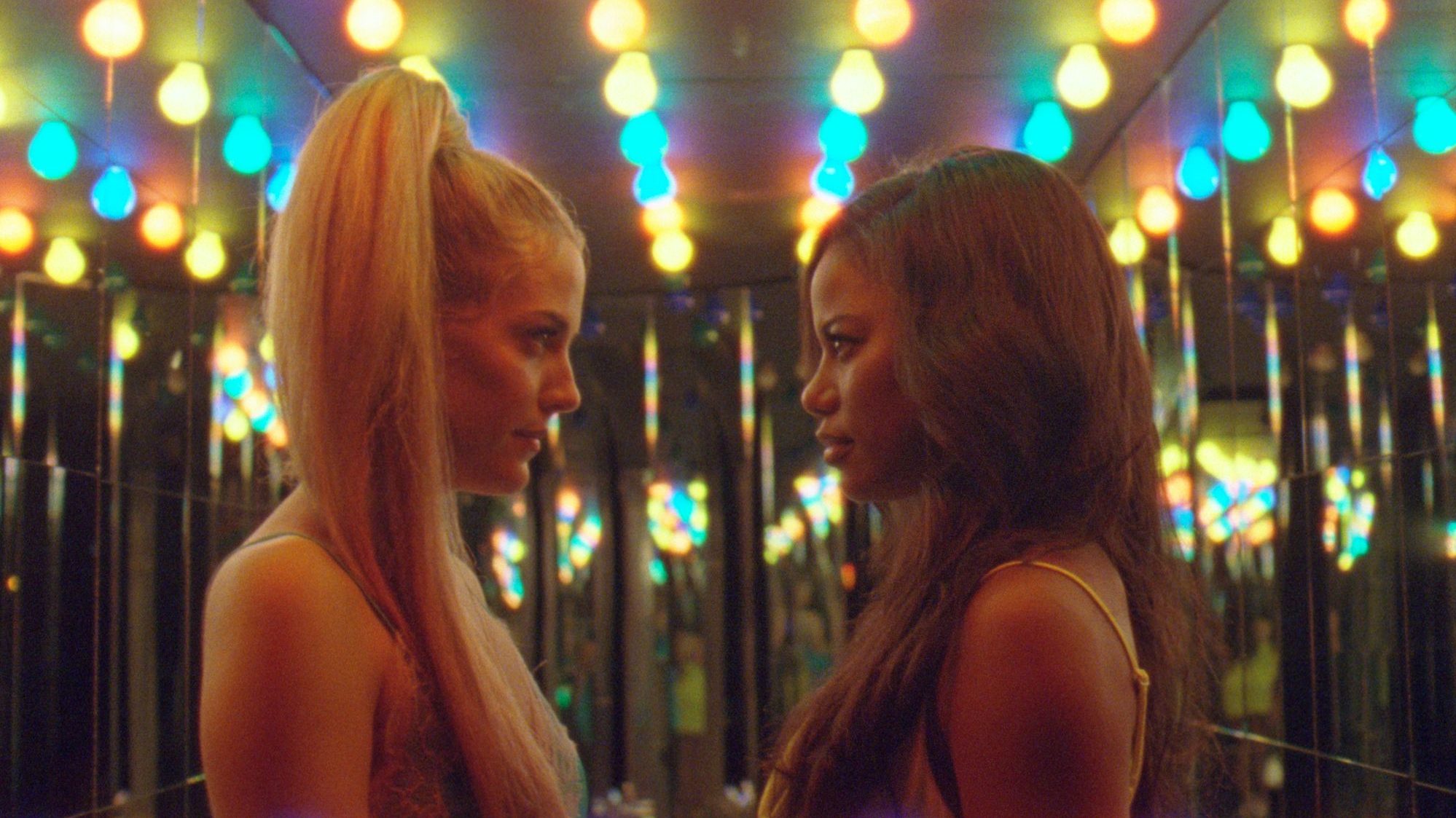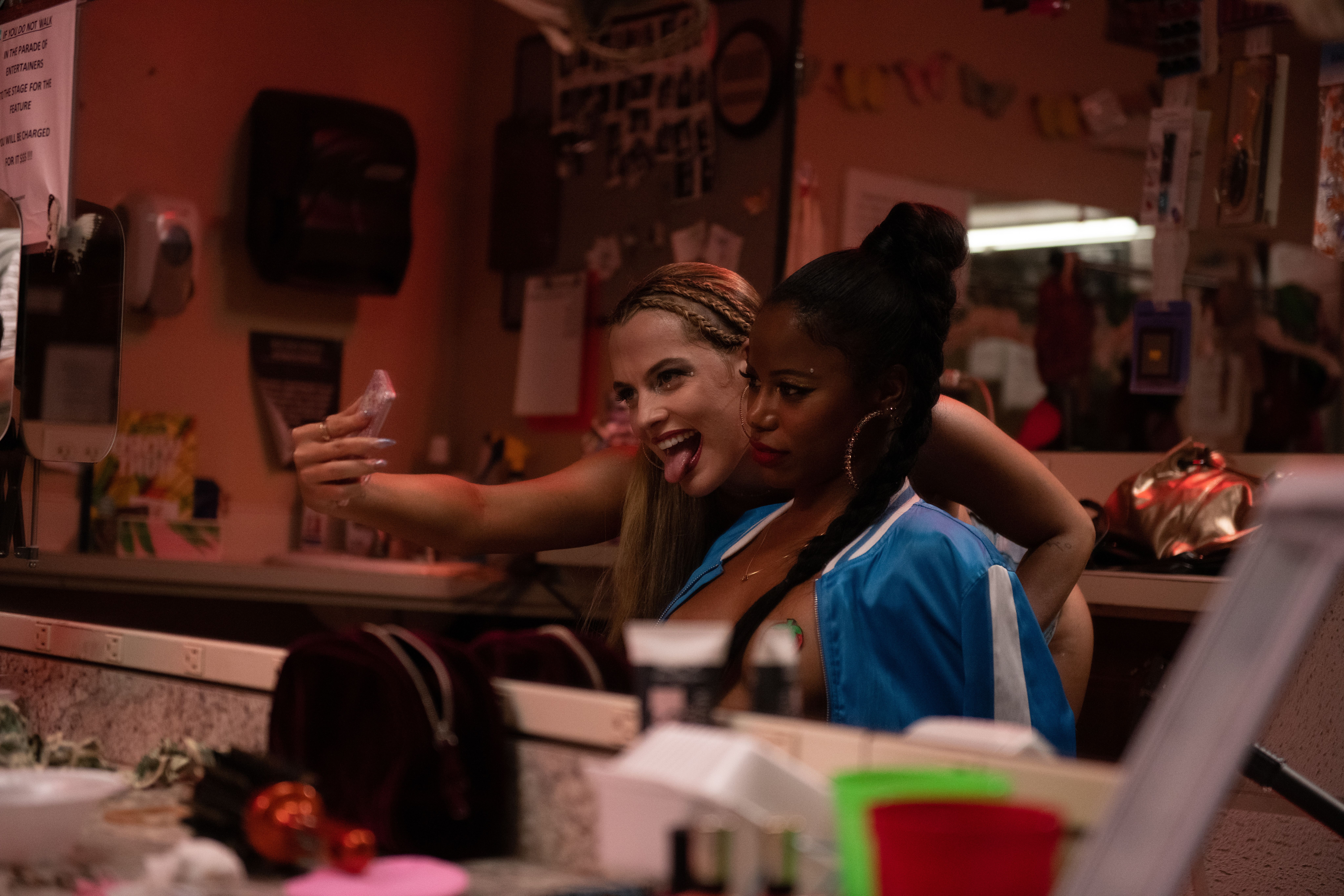

The tweet storm heard ’round the world has finally made it to the big screen. Janicza Bravo and Jeremy O. Harris’s Zola, an adaptation of A’Ziah “Zola” King’s Twitter tale of a stripper road trip gone awry, opens in movie theaters—real life movie theaters!—today, starring Taylour Paige as the titular Zola and Riley Keough as the unpredictable white sex worker who dupes her into their Florida misadventure.
The critics are weighing in with their thoughts on one of this summer’s most anticipated releases. Here’s what they have to say:
“The original Twitter thread, laden with exclamation points and smileys, aimed to provoke amazement and incredulity. Wait, what? No way! Zola, for all its displays of candor and bravado, both intellectualizes and literalizes what might have happened that weekend, and mutes the blunt poetry of King’s voice. The plot points and images are offered up like term-paper prompts, inviting you to reflect on some of the urgent and fashionable topics of the day: white privilege; cultural appropriation; the male gaze; girl-boss feminism; sexual labor and commodity fetishism under late capitalism; Florida, man. … Zola, though it gestures in the direction of satire and Florida noir, lacks a consistent tone or point of view. There is plenty of drama, and some hard feelings — mostly courtesy of Derrek, who is jealous, anxious and altogether pathetic — but not a lot of intrigue or honest emotion. I guess if that’s what you’re after, it’s best to stick to Twitter.” — A.O. Scott, The New York Times
“Zola is an adaptation that honors the story’s digital genesis in freaky, creative ways, but it also feels like witnessing the remnants of a sputtering, failed firework, a movie that doesn’t (and maybe never could) live up to the initial hype of its viral drop. … The original Zola thread was out-of-control, a romp through strip clubs and motel rooms that culminated in gunfire and a suicide attempt. But on-screen, all of that intoxicating drama and suspense feels flattened, even with Bravo and Harris’s trippy approach.” — Hazel Cliss, Jezebel

“With Zola, however, the director Janicza Bravo has made a film that contends with the uneasy interplay between characters’ online and offline selves. And it posits that we use the internet to fool ourselves as much as to fool others. … Zola is refreshing because it understands a common emotional dependence on the internet, even—or especially—in the face of fear and anxiety.” — Shirley Li, The Atlantic
“A movie like this could easily turn into a tale where the protagonist is merely a bystander along with the viewer, with everything happening to her and no sign of agency or personality in sight. But again, I come back to Paige’s performance and how so much of it rides on what she does with those eyes, and not what she says. … Zola’s whirlwind dalliance with Stefani and her associates plays like a fever dream doubling as an allegory for gaslighting. It’s a jolt when, at a pivotal point, she wonders aloud, ‘Who’s looking out for me?’” — Aisha Harris, NPR
“The movie—like its advertising—captures much of the zippiness and fun that made following Zola’s tweets so exciting, but Bravo and her co-writer, the Tony-nominated playwright Jeremy O. Harris, never lose sight of the fact that, as thrilling as these events might be to experience vicariously, they must have been unpleasant and even terrifying to actually live through.” — Karen Han, Slate
“Above all, Zola is a treat for fans and followers of the original Twitter thread. At the same time, the film occasionally leans too liberally on the story’s viral popularity, failing to clarify hazier moments for the viewer who may not be familiar with the source material. … Still, the film effectively emphasizes what those who breathlessly followed along on Twitter already know: that a good story can come from anyone or anywhere, whether it’s told shot by shot or 140 characters at a time.” — Shannon Miller, A/V Club














